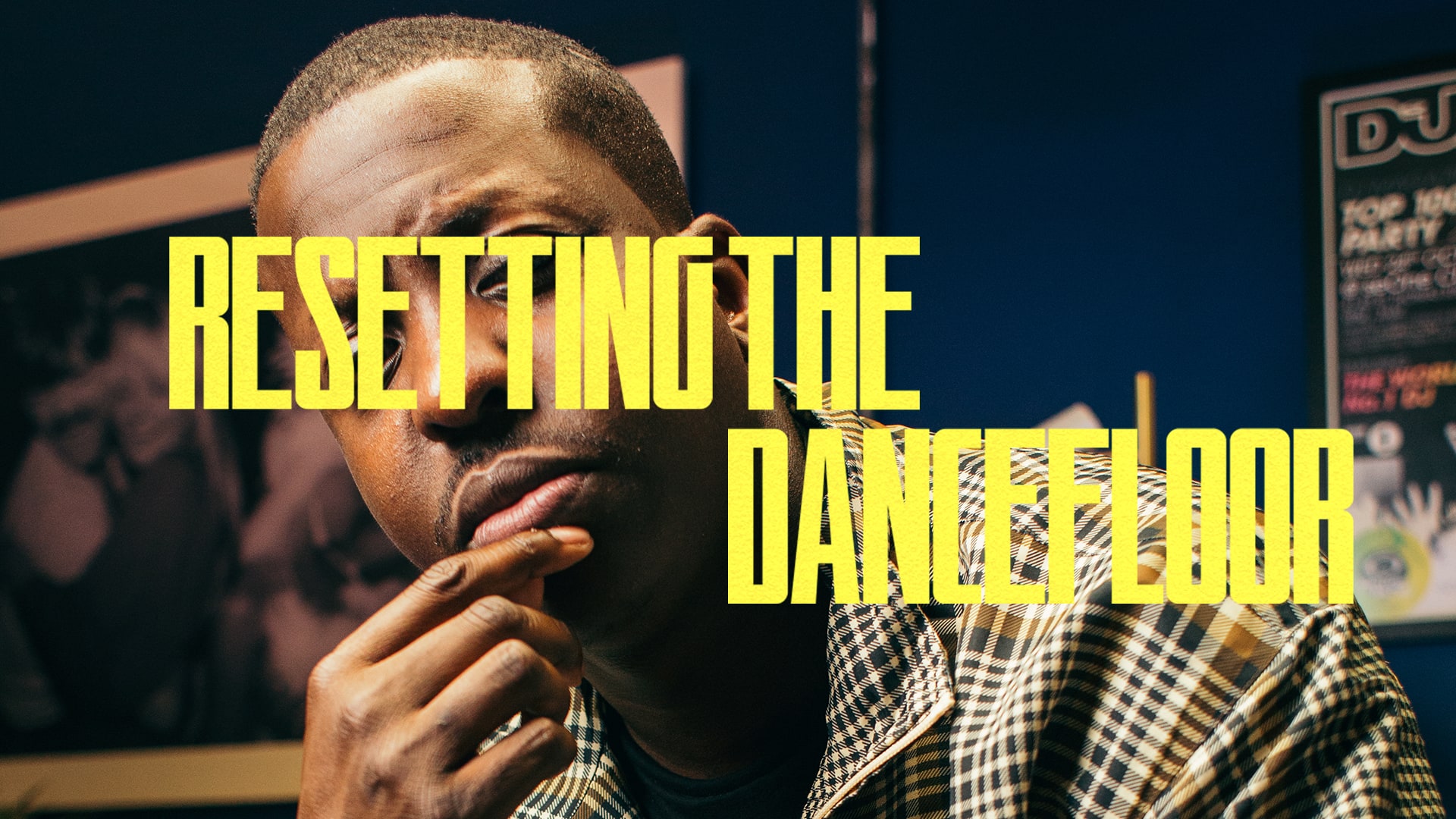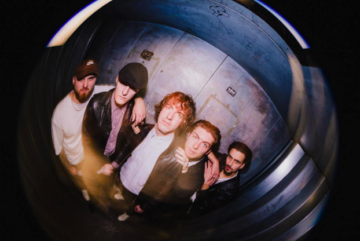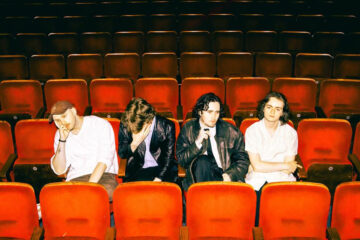
Jamal Edwards, Chica Gang and HE.SHE.THEY discuss club culture, their favourite tunes and returning to the dancefloor in a brand-new, three-part series on whynow radio, which kicks off this week.

Those sweaty nights out, packed with your mates, the bass from the music hitting you as you enter the club, oh how we’ve missed it. It was primarily in their absence, as venues were forced to close during the depths of the 2020 lockdown, that showed us just how much they were missed, and what a vital role they play in our lives.
In light of whisky brand Ballantines ‘Resetting the Dancefloor’ research (click here to read it in full), which gave us our namesake for the audio series, whynow radio station manager Scarlett O’Malley speaks to Jamal Edwards, Chica Gang and HE.SHE.THEY about their thoughts, feelings and intimate moments on the dance floor.
We thought, “why don’t we make that space, and bring all the artists that we want to see and just do it all by ourselves?”’
It’s the type of landscape that compelled Spanish DJing duo Chica Gang to run their own club nights. ‘I think when we were 18 or 19,’ Alba Loughlin, one half of Chica Gang, told whynow Radio, ‘and we always thought that [the club scene] was a place created by and for men – it wasn’t our kind of place, because of the artists and line-up, for instance.
‘We weren’t the people who that was made for. So, we basically thought, “why don’t we make that space, and bring all the artists that we want to see and just do it all by ourselves?”’

A similar origin story exists for HE.SHE.THEY – a collective and label who run club nights and who have promoted from Newcastle to L.A. Sophie Kearny explained to whynow Radio ‘one of the reasons we started HE.SHE.THEY records was because we were wanting to platform up-and-coming new talent, but they were struggling to get releases in different ways and get on Spotify playlists, or whatever it might be.’
‘You realise it’s like a massive Tetris game. So, we’re having to diversify the label between having those more established artists that really get what we’re trying to do, but then also giving artists their first release, because if we give them that and we know how the machine works, then we can give them the best shot we possibly can and provide a few building blocks to go and start that process.’
We started HE.SHE.THEY records was because we were wanting to platform up-and-coming new talent
Someone who knows all about providing the first opportunity to fledgling artists, too, is Jamal Edwards. Since founding SB.TV in 2006, Jamal Edwards’ platform has gone on to amass over 1.15million subscribers, more than a billion views, and released around 4,000 videos of fledgling young rappers vying for their spot in the limelight.
But, believe it or not, behind the bars and rap battles he’s helped put out resides a techno-head in Jamal Edwards, who used lockdown to pick up DJing and now plays sets under the moniker Jamal Artman.

‘I was always a massive fan of electronic dancing,’ he tells whynow Radio, ‘and I’ve always been in a rave from when I was young. I guess SB.TV opened the doors for me to chat to people like the Jamie Jones’, Alan Fitzpatrick, the Hannah Wants… Because they’ve seen what I’ve done with SB.TV. So now, being able to DJ and have these contacts, get tunes out, and play them live in front of an audience is an unreal feeling.’
‘It’s quite funny because I put all my electronic dance stuff underneath a different name simply for the fact that I don’t want people to turn up thinking they’re going to hear grime, rap and hip hop.’
This type of openness will also get music out of some of the cultural cul-de-sacs it’s found itself in
Such a mindset not to have oneself boxed-in is precisely what other stars involved in Ballentine’s report have expressed. Honey Dijon, for instance, has stated she hopes for greater openness between people and different music scenes once clubs fully reopen.
‘This type of openness will also get music out of some of the cultural cul-de-sacs it’s found itself in,’ she has said, ‘Everyone is staying in their own social environments, in their own echo chambers. No one is moving on or cross-pollinating with other types of people or music or genres.’
ArrayCredit: Tristan O’Neill. UK Garage night. Lords of the Underground, Scala club, London. 2006
The report, which surveyed more than 2,300 music-lovers across four continents, was created with the intention of determining what improvements could be made to music and club culture as we try to recover from the pandemic. It also details a trend in people hoping to be more aware of issues surrounding club culture, with 64% saying the pandemic has caused them to reflect on representation at music events. In addition, 3/4 of those surveyed said they would now speak out if they saw an act of discrimination at a music event.
Granted, recent news means that at 500+ capacity venues in England, clubgoers will have to show COVID passports – a move regarded as having a ‘devastating impact’ on the nightlife industry, Michael Kill, Chief Executive of Night Time Industries Association, has said.
Some of the figures are stark and suggest a bleak picture beneath the strobe lights
Yet the basis of Ballantine’s report isn’t necessarily aimed at issues surrounding the pandemic. Instead, as its title suggest, it’s about using the time spent away from clubs to seek for a cultural reset at such venues – on issues such as discrimination, pay inequality and the diversity of line-ups.
Some of the figures are stark and suggest a bleak picture beneath the strobe lights. Whilst 84% of people surveyed say music has brought themselves and friends together over the years, 1 in 3 people report they have experienced discrimination at an event; that same number of people (84%), meanwhile, have also recorded witnessing discrimination.

Photo: Tristan O’Neill, 1996. Museum of Youth Culture

UK Garage night. Lords of the Underground, Scala club, London. 2006
Other damming statistics includes the 77% who worry about their safety when attending music events – a cause of growing national concern in recent times – as well as the 72% who said they will now only attend ‘safe and inclusive spaces’.
Ultimately, those sweaty nights with classic anthems may be some of the best of our lives, but not everyone always feels safe, welcomed, or treated equally. Following one of the most major events of our generation, it’s time to pause and reflect on how we can reset the dancefloor.
Following one of the most major events of our generation, it’s time to pause and reflect on how we can reset the dancefloor
But first, to get you in the mood and be reminded just how special club nights are hear from Jamal Edwards, Chica Gang and HE.SHE.THEY, about their favourite tracks, their rise into the industry and their hopes for events going forward.
Resetting the Dancefloor starts at midday on whynow Radio on Monday 20th December. Followed by episodes on 21st December and 22nd December. Tune in by visiting whynow.co.uk/listen or click here.
To read more about the Resetting the Dancefloor Report visit ballantines.com.Or click here for more information.




